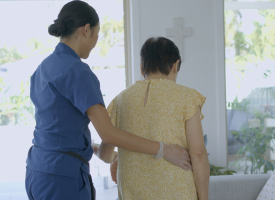Time to end the hospital funding blame game
The Australian Medical Association has called on all levels of government to end the ongoing blame game over public hospital funding and prioritise the needs of patients.

The call comes amid stalled negotiations over a new hospital funding arrangement, nearly two years after governments agreed to a new funding model in principle in 2023.
AMA President Dr Danielle McMullen highlighted while negotiations continue to stall, patients suffer.
"Australians are caught in the middle of a political dispute as hospital emergency departments remain under pressure and surgery waitlists continue to grow," she said.
"It's time for the Commonwealth, states and territories to stop pointing fingers and come to a sustainable agreement."
The AMA acknowledges the genuine cost pressures facing public hospitals, including workforce shortages, an ageing population and increasing patient complexity.
Funding Australia’s hospitals requires a partnership between federal, states and territory governments. Both sides must contribute appropriate funding together if hospitals are to improve.
"These challenges require a genuine collaborative approach. All levels of government need to lift their contribution and work collaboratively to deliver the healthcare services Australians deserve," Dr McMullen said.
"We urge all parties to finalise a fair and adequate funding agreement that recognises the true cost of delivering modern healthcare."
The AMA remains committed to working constructively with all governments to ensure Australia's public hospital system can meet current and future demands.
For years, the AMA’s Clear the Hospital Logjam campaign has highlighted the dire situation in our nation’s public hospitals, with yearly report cards tracking the drastic decline of the public hospital system.
In the lead up to the last federal election, the AMA called for increased matched funding, the reintroduction of funding for performance improvement, expanded capacity and funding for innovative out-of-hospital options to reduce admissions.
“This is a crisis that was developing long before the Covid-19 pandemic, and the inaction from several consecutive governments at all levels is having drastic consequences for the entire health system,” Dr McMullen said.
“Patients deserve to be seen on time when they visit the hospital in an emergency — but instead, spending hours ramped in an ambulance has become the norm.
“All governments must end the blame game now — for the sake of all Australians.”



